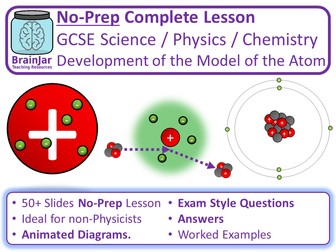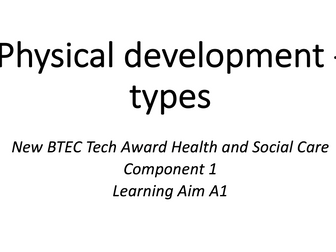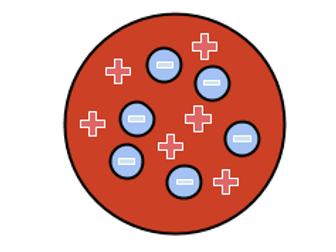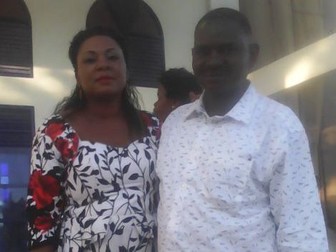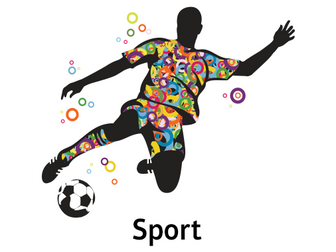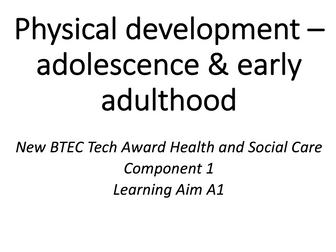
Development of the Atomic Model
Complete No-Prep lesson with exam questions, tasks and answers on Development of the Model of the Atom for AQA GCSE (9-1) Science / Physics / Chemistry. Exam Spec: This lesson covers all of AQA GCSE Combined Science 6.4.1.3, Physics 4.4.1.3, and Chemistry: 4.1.1.3.
As a Secondary Science teacher and Deputy Headteacher for many years I make high quality no-prep lessons so busy teachers can teach outstanding lessons without spending hours planning. This high quality lesson includes explanations, different types of in-lesson assessment (all with answers) and unique exam questions.
My lessons are ideal for non-Physicists - as a Biologist who retrained as a Physics teacher I know how to take learners on a journey that builds up their understanding step by step, while still going into a lot of depth. The preview video shows a representative sample of slides from the resource so that you get a good idea of what it includes before you buy.
What’s Included:
• Starter / Do Now Activity
• Explanation slides in “chunked” sections with animated diagrams.
• Multiple questions in different question styles and difficulties - no need for worksheets. Each “chunked” explanation section typically includes a set of “learning check / quick questions” followed by a set of in-depth questions on the learning from that “chunk” of the lesson. All questions have answers.
• Exam-style questions on the whole lesson at the end of the lesson- these are unique, based on real exam questions but not just copied from exam boards.
• Answers for all questions
• All easily editable to adapt to your teaching or to use in existing lessons.
• Slightly humorous, at points, if you like that sort of thing (or just delete those bits if you don’t).
Learning objectives:
Describe how new experimental evidence may lead to a scientific model being changed or completely replaced.
Describe how our model of the atom has changed over time because of:
The discovery of the electron.
The alpha scattering experiment.
The discoveries of energy levels, protons and neutrons.
Describe the alpha scattering experiment, and the new evidence it produced.
Explain why the evidence from the alpha scattering experiment changed the model of the atom.
Describe the plum pudding model of the atom and why it changed.
Describe the differences between the plum pudding model and the nuclear model of the atom.
The lesson was written for AQA GCSE Science / Physics but is very likely to be applicable to other exam specifications.
Please leave a rating / review and all other feedback gratefully received!
